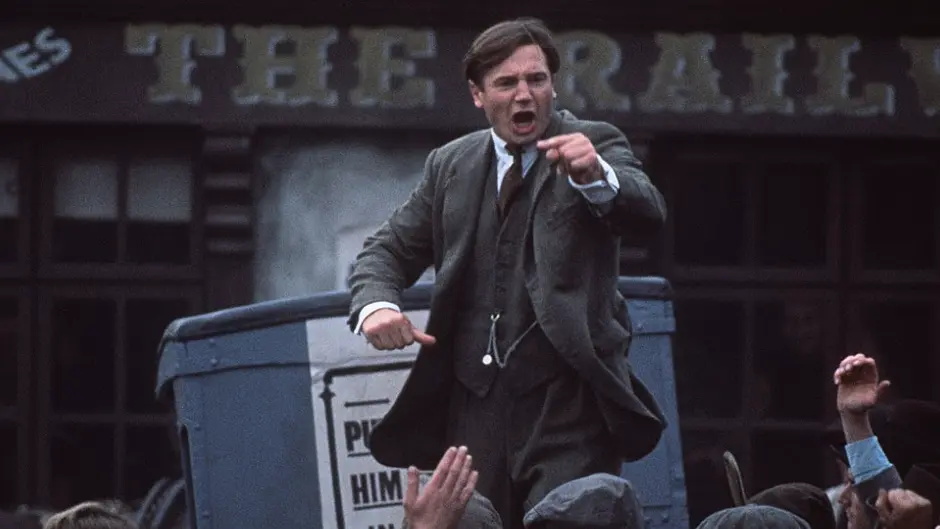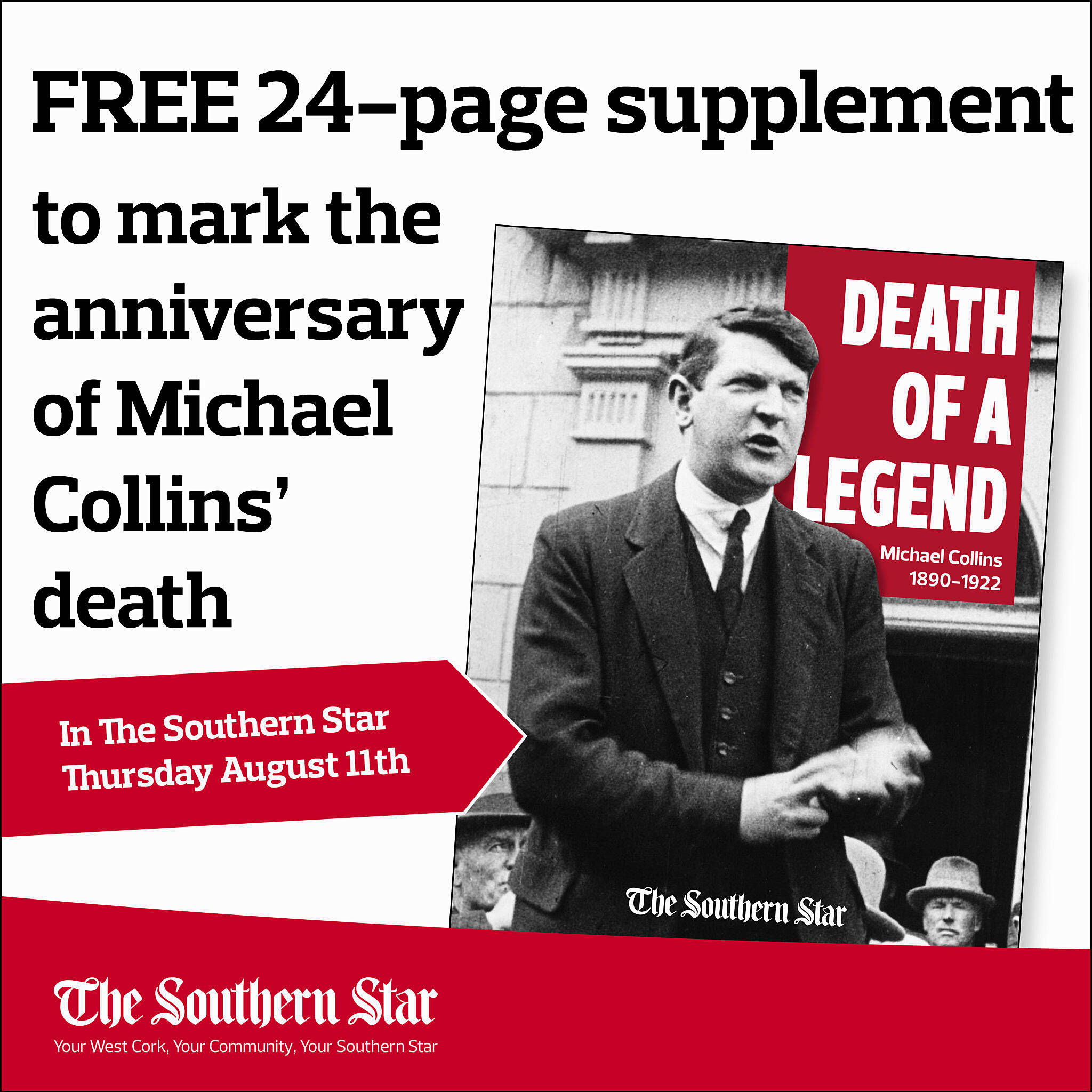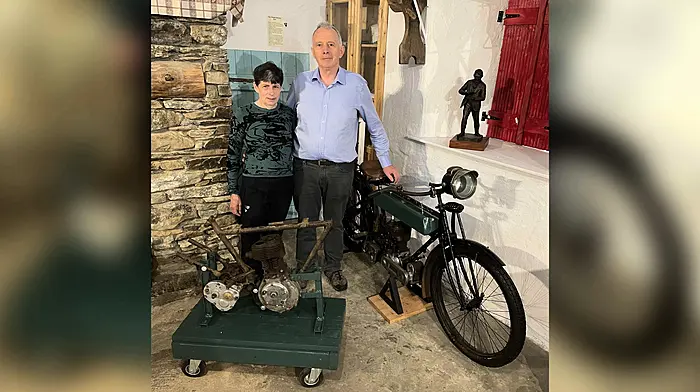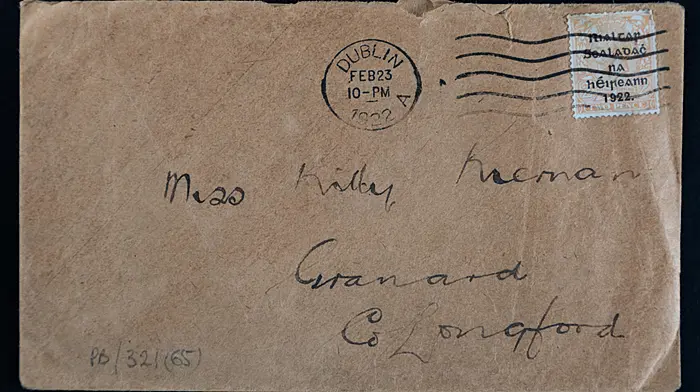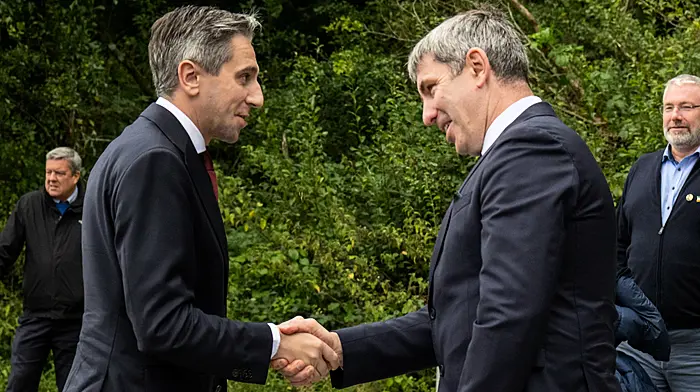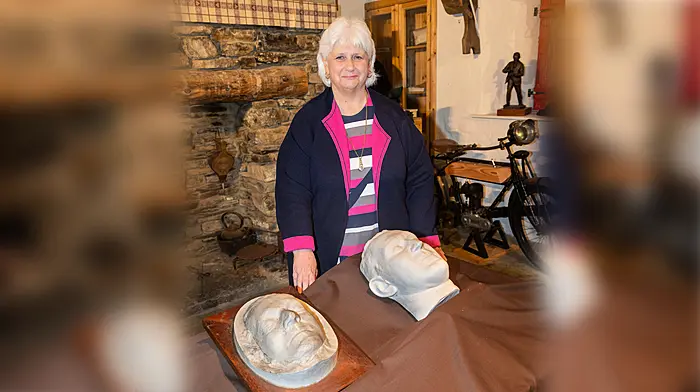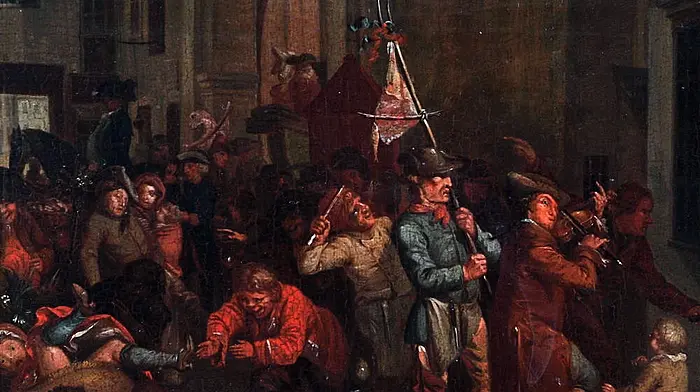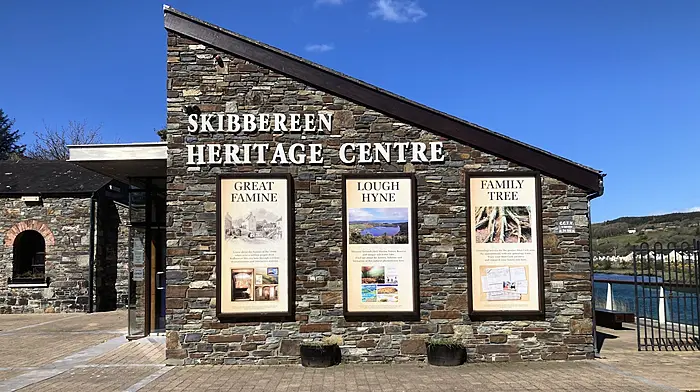As part of a new series The Southern Star's resident film buff Dylan Mangan is revisiting some classic films that were set in or are heavily influenced by the great county of Cork. Last week was The Wind that Shakes the Barley, this week – Michael Collins (1996) directed by Neil Jordan.
Michael Collins remains to this day one of the most important figures in Irish history, and a man who has inspired countless people across the world.
His charismatic life and suspicious death have gone down in history as legendary stories, both of which are portrayed in dramatic fashion in this epic, sprawling film which is to this day an important and riveting lesson in the art of the biopic.
Refreshingly ambitious in comparison to most Irish films, Michael Collins keeps you engaged from the first bullets to the last.
It is a fast-paced story, with Jordan expertly transitioning from scene to scene just at the right time, only really slowing down for any romantic scenes which, while important to Michael Collins’ story, can feel like an afterthought in the grand scheme of things.
In contrast to The Wind That Shakes The Barley, this is a film which plays up the drama and leans into a more traditional cinematic style of storytelling – there are no mumbled speeches here.
While Ken Loach’s film felt personal and built its importance on smaller moments, Michael Collins revels in the epic and uses the mythology of the man to its strength.
Liam Neeson was a great choice for The Big Fella. He has a great physical screen presence and there is a power and gravitas to his performance.
While his Cork accent may not be the best, he sounds like a native Clon-man in comparison to co-star Julia Roberts, who plays Kitty Kiernan – the less said about her the better, sadly.
The late Alan Rickman was an interesting choice for de Valera, as his reputation as a movie-villain gained from films like Die Hard does threaten to turn his Dev into a caricature of one at times.
There are some issues with Michael Collins – but it remains a great film in and of itself. It is high-drama and uses Irish history effectively. However, it is slightly let down by a couple of the changes made to the facts in the name of storytelling.
Biopics are known for this and, let’s face it, often have to make some changes as there are still narrative rules by which they must abide. In this case, those changes diminish the film due to their gravity in our country’s story.
To an outsider they won’t matter much. An Australian watching the film doesn’t really mind whether Dev had a hand in Collins’ killing or not, but considering both men’s importance, Jordan’s decision to imply that he did doesn’t necessarily work.
At the same time, the film isn’t necessarily as inaccurate as you might assume and can be a useful learning tool for anyone unaware of Collins.
To this day very little Irish history is taught in British schools, leaving films like this to do the heavy lifting. Having recently lived in London, most people you speak to about Irish history know two things: the famine and the IRA.
Now, if the British empire’s myriad transgressions were all taught in school there might not be time for much else, but surely their role in the history of their closest neighbour should at least make the cut.
Irish history is full of stories that Hollywood, Netflix, Amazon, Disney – all the big studios – should love. Maybe it’s time the world saw more of it on the screen?
Read Dylan Mangan's review of The Wind that Shakes the Barley here.

